Youth in Informal Settlements
Many of the youth who in live in cities in the developing world live in slums or otherwise marginalized urban areas. Children and youth who grow up in slums are less likely to attend school than non-slum youth, as they face a range of factors hindering their attendance. youth are “working poor”— they are unskilled and have insecure jobs that they do in unsatisfactory conditions. Employment in the informal economy does not necessarily bring about a higher standard of living.
Visit Mathare Environmental Conservation Youth Group website to find out more.
Build capacity among youth in the community
Support active youth participation in decisions affecting governmance
Strengthen climate action and improved slum environment
Effective urban crises prevention and response
Meet Mathare Environment Conservation Youth Group!
The Group’s coordinator, Isaac Muasa, a winner of UN-Habitat’s Scroll of Honour award, describes the main challenges facing the community during the pandemic such as unemployment but also outlines the progress being made including providing facilities for over 2 million handwashes. “Young people have been taking the initiative of trying to look at challenges and turn them into opportunities,” he says.
Stories and News

Youth Lead The Way In Preventing COVID-19 Spread in Kenya’s Informal Settlements
Nairobi, 12 May 2020 – Young people in Kenya’s informal settlements, cities and towns are the driving force behind preventative
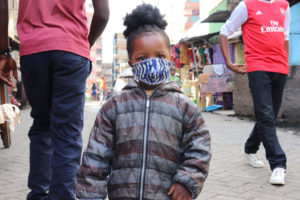
Opinion: Slums Are The Next Front Line In Fight Against COVID-19
By Maimunah Mohd Sharif The spread of COVID-19 has transformed many of the world’s great cities into tragic household names as their reported
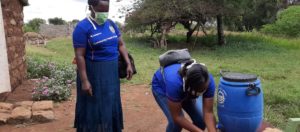
African Youth Hard At Work Reducing the Spread of COVID-19
Written by Raphael Obonyo As COVID-19 (coronavirus) continues to wreak havoc around the world experts predict that African countries could
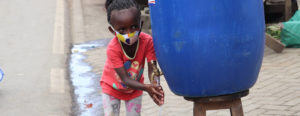
Over 135,000 Handwashes at UN-Habitat-Supported Facilities in Nairobi’s Informal Settlements
Story by Isaac Muasa Nairobi, 28 April 2020 – UN-Habitat and its partners have engaged community members from the informal
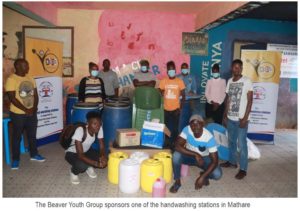
Youth Driving Action Against The Pandemic In Nairobi’s Mathare Slum
The COVID-19 pandemic is significantly affecting the world’s most vulnerable groups, including the one billion people living in informal settlements
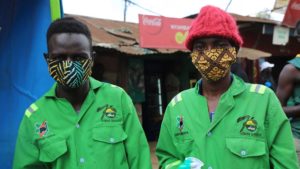
Youth-Led Organizations In Kenya Respond To The Government’s Call To Fight COVID-19
“I want to make a special appeal to the youth of our nation. The youth are the biggest component of
Listen to Mathare Youth Voices
Research on Informality, COVID-19 and Youth
We publish research on the latest findings addressing youth issues.
